Scottish Deerhound
No products found which match your selection.
Shelter Dog Meal Donation Count:
No products found which match your selection.
The Scottish Deerhound is known for its noble and gentle demeanor. It thrives in a home environment where it can receive ample exercise and love. Their large size and high energy levels make them best suited for homes with space for them to run and play.
The Scottish Deerhound is known for its calm demeanor and loving nature, making it an excellent family pet. Despite their large size, they are known to be good with children and other animals. They carry themselves with a quiet grace and are often described as resembling a rough-coated Greyhound.
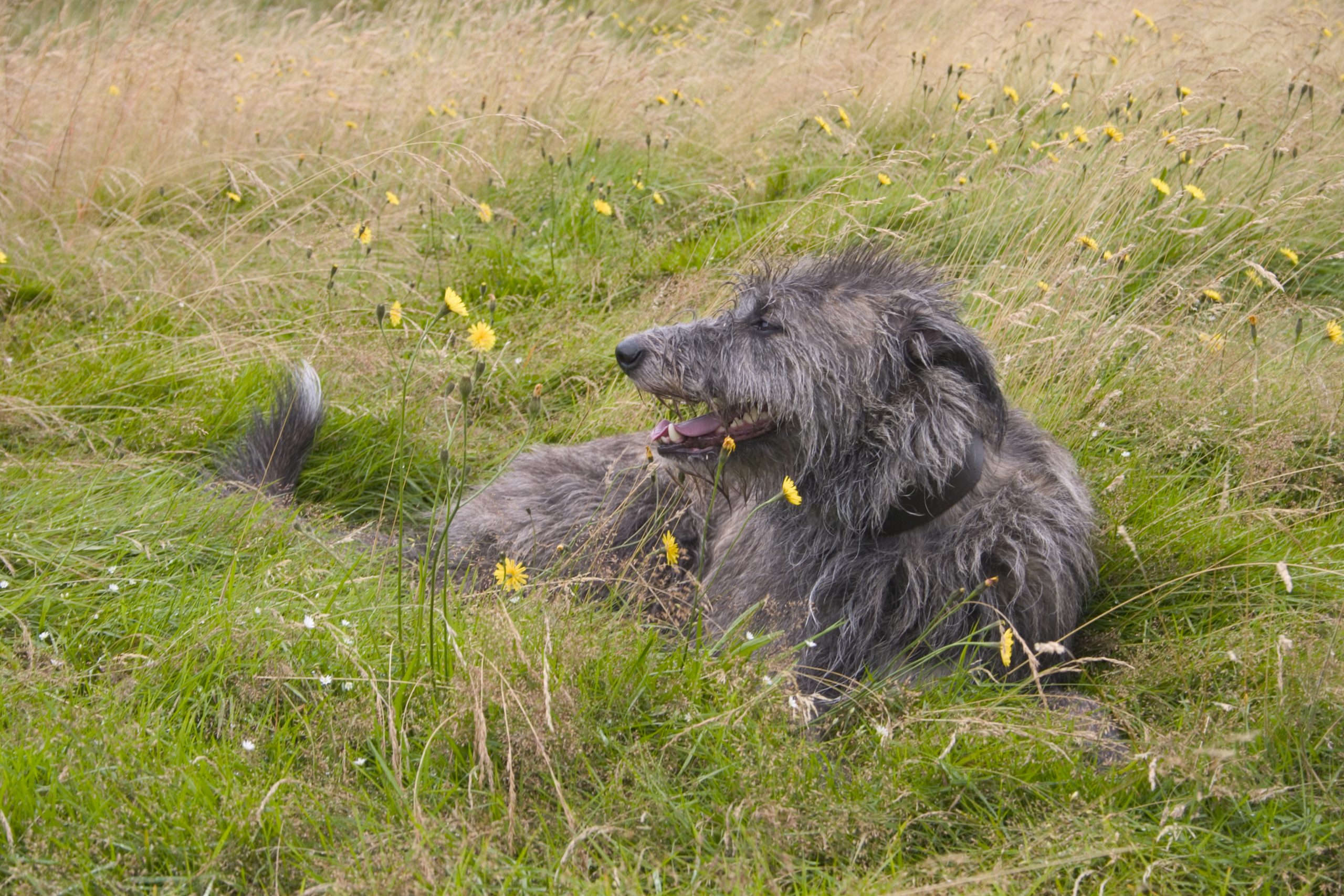
Originating in Scotland, the Deerhound has a history intertwined with Scottish nobility. They were highly valued for their hunting prowess, especially for pursuing red deer. This breed’s history dates back to a time before recorded pedigrees, and it’s believed that they share a common ancestry with the Irish Wolfhound.
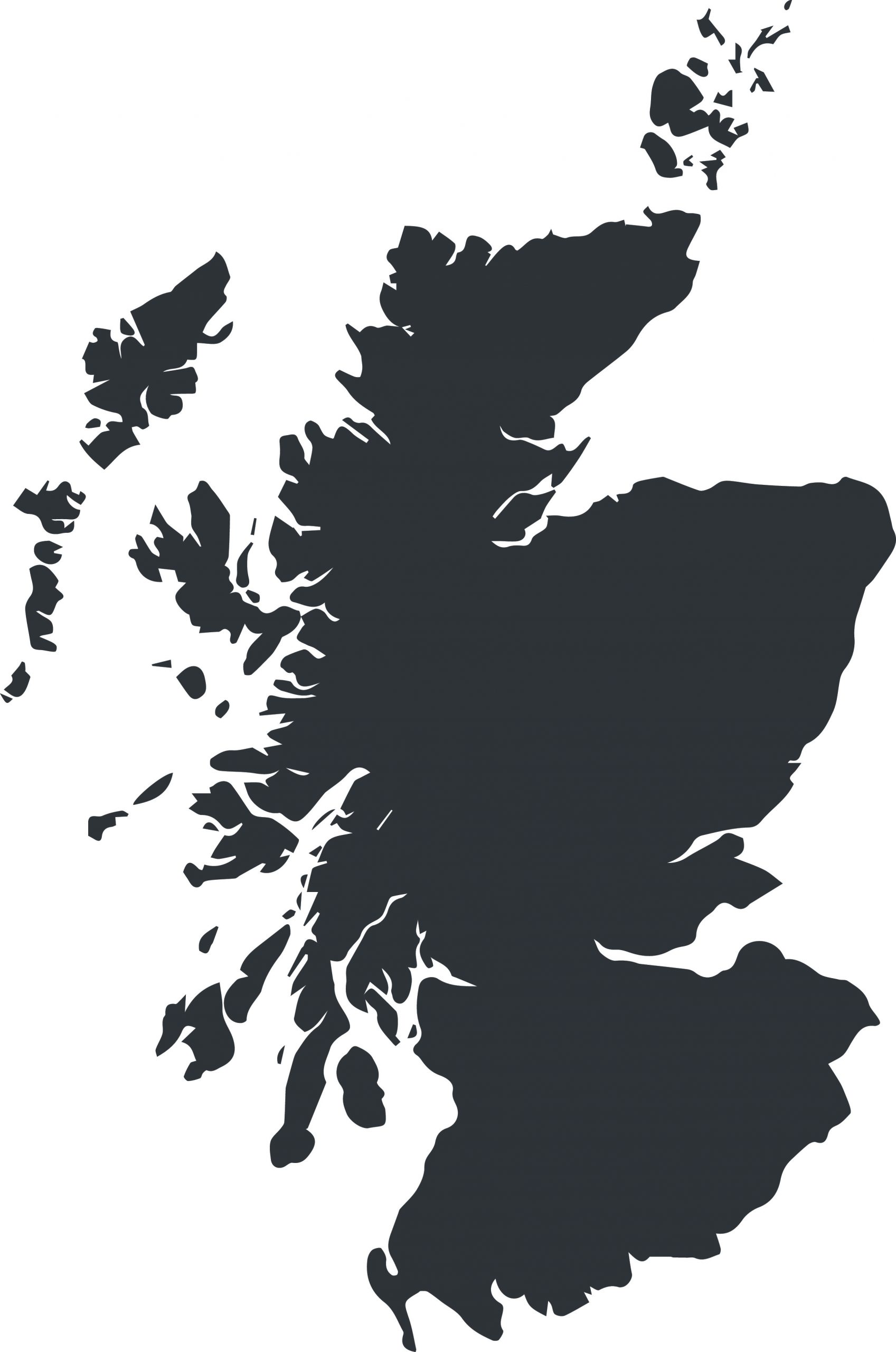
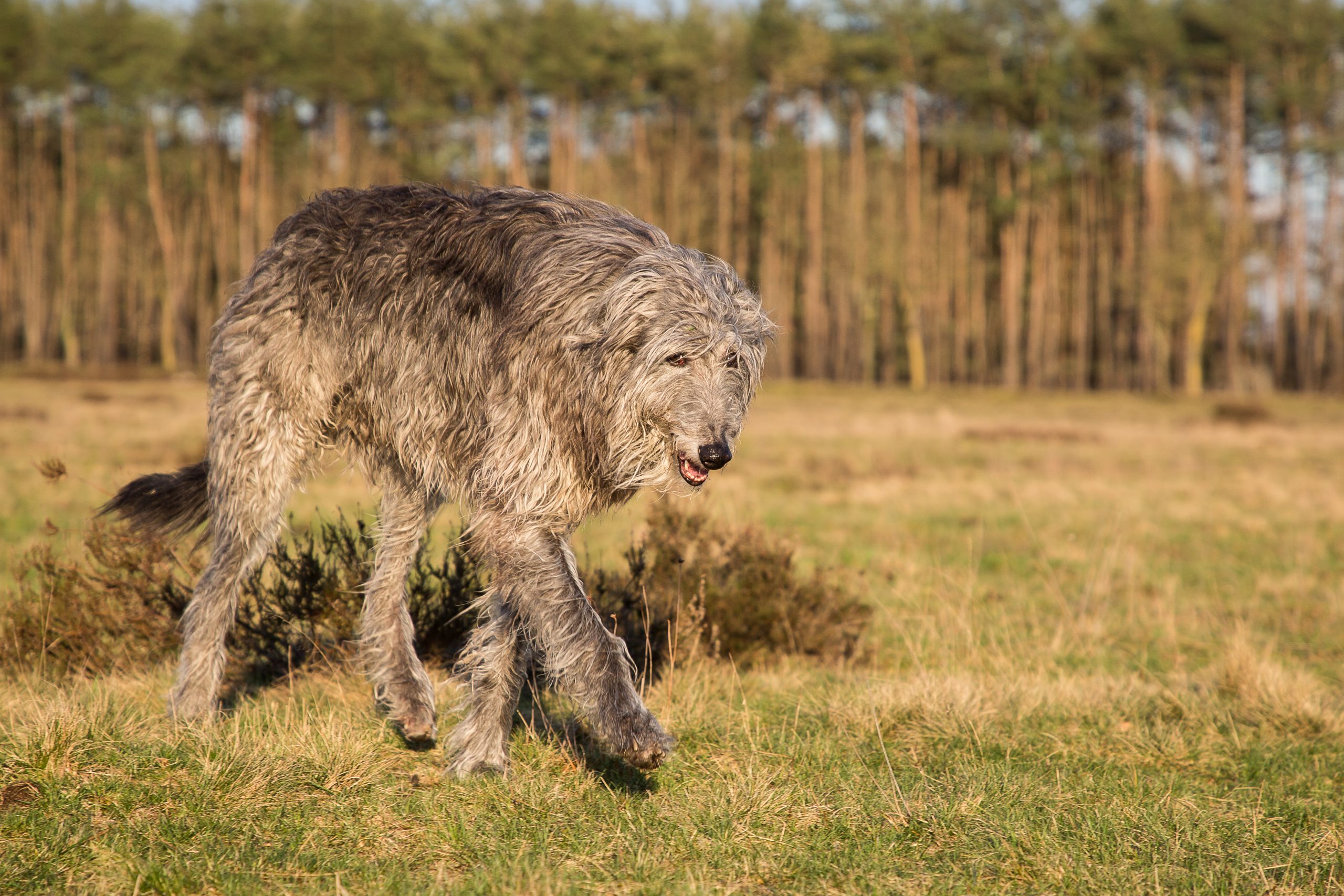
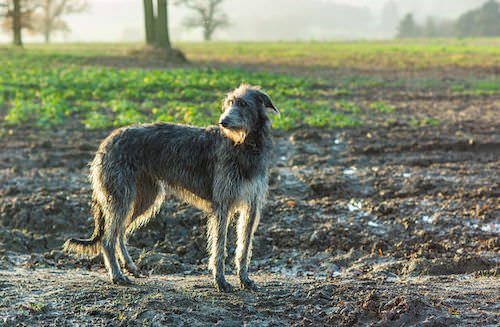
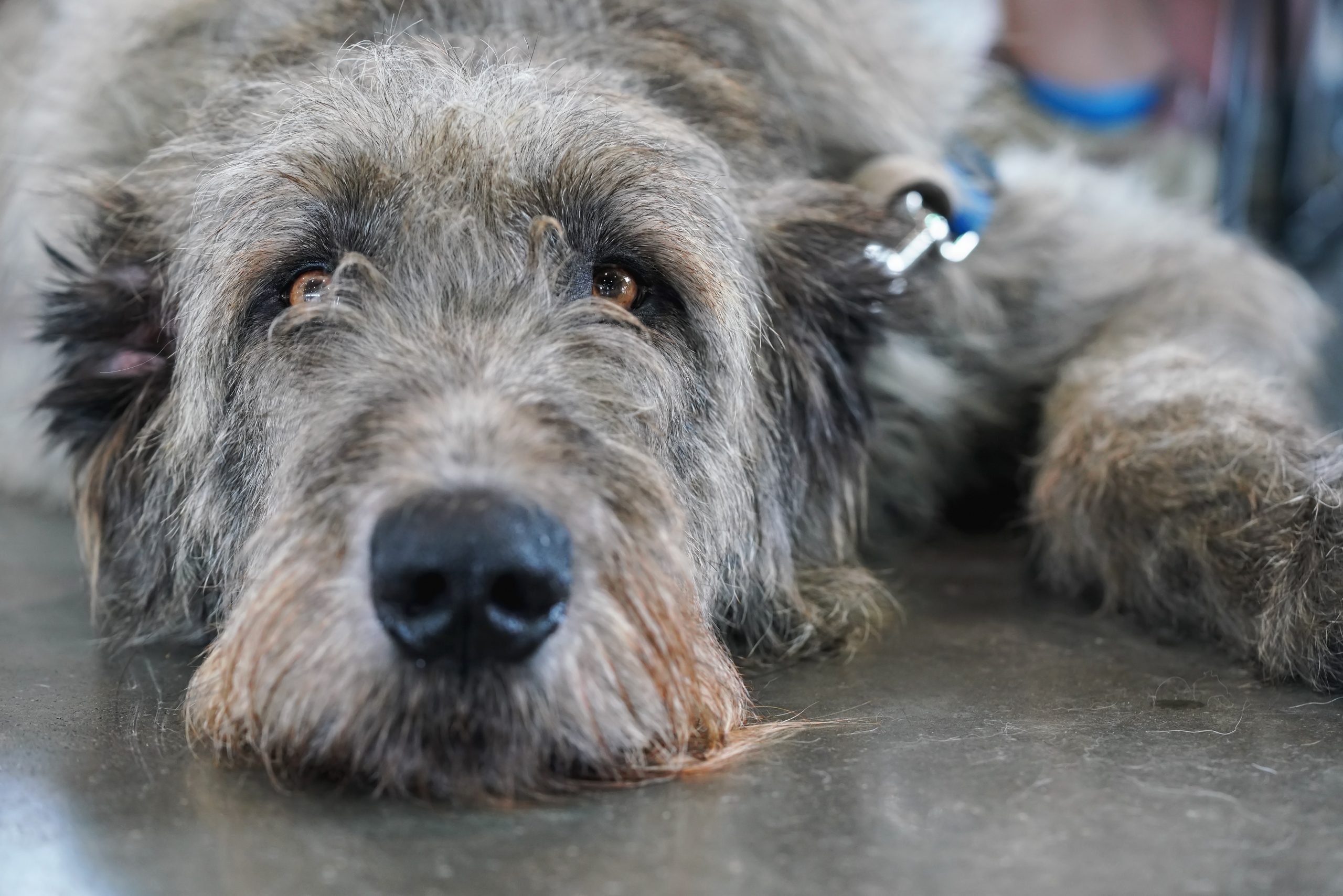
Prone to bloat and gastric torsion; smaller, more frequent meals can help mitigate this risk. Risk of cardiomyopathy and bone cancer. Regular veterinary check-ups are important.
Their coat requires regular brushing to prevent matting. Bathe only as needed to maintain the natural oils in their coat. Regular nail trimming and dental care are essential.
Needs daily exercise; long walks and opportunities to run are ideal. They excel in canine sports like lure coursing. A fenced yard is recommended for off-leash activities.
Respond well to gentle, positive reinforcement training methods. Early socialization and obedience training are crucial. Intelligent but can be independent, requiring patience and consistency in training.
Requires a balanced diet appropriate for large breeds. Avoid overfeeding to prevent obesity and related health issues. Special attention to diet is necessary during their growth phase to support healthy bone development.
The Scottish Deerhound is a noble breed that thrives in a loving home environment. They require a moderate level of care, with particular attention to exercise, diet, and regular veterinary check-ups. In return, they offer unmatched companionship and loyalty, making them a truly special addition to any family.
Scottish Deerhounds, majestic and gentle giants, are known for their unique appearance and noble demeanor. Like all breeds, they come with certain predispositions to health issues. Here are some of the common health issues faced by Scottish Deerhounds, along with recommended tests to detect or manage these conditions:
For Scottish Deerhound owners, proactive health management, including regular veterinary check-ups and specific screenings, is key to identifying and addressing these common issues early. Collaboration with a vet who has experience with large breeds or, ideally, with Scottish Deerhounds, can provide tailored health strategies and screenings for your pet.
The iHeartDogs Free Rx Discount Card Program is a pet prescription discount card that can help you save money on your furry friend’s medications. The card is free to sign up for, and you can use it at participating pharmacies nationwide. To use the free program, simply show the card to your pharmacist when you pick up your pet’s prescription. The pharmacist will then scan the card, and you will receive a discount on the price of the medication.LEARN MORE
Caring for a Scottish Deerhound, or any large dog breed, involves several recurring and occasional expenses. The annual cost can vary depending on various factors like your location, the dog’s health, and the level of care you choose to provide. Here’s a breakdown of the typical expenses:
Total Estimated Annual Cost:
$2850 - $8700
It's important to note that these figures are estimates and can vary. Also, the first year of owning a dog can be more expensive due to one-time costs like spaying/neutering, initial vaccinations, and training. Regular budgeting for your dog's needs and an emergency fund for unforeseen costs are essential for responsible pet ownership.